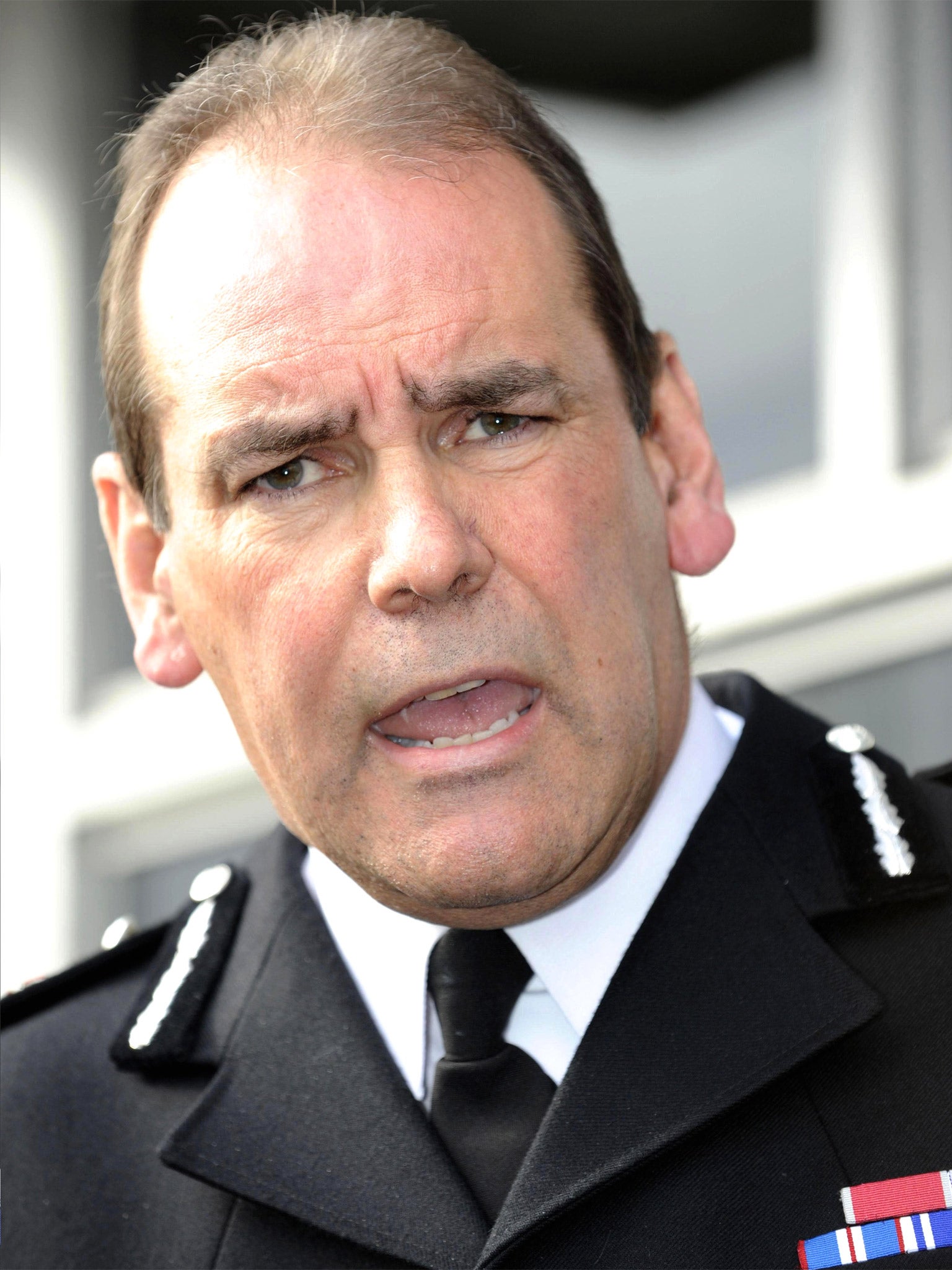Disgraced Hillsborough officer Sir Norman Bettison linked to campaign to smear Stephen Lawrence family

A former chief constable who was accused of involvement in a police cover up in the wake of the Hillsborough disaster is to be investigated over claims that he sought to influence the evidence of a witness to the Macpherson Inquiry into the death of Stephen Lawrence.
Sir Norman Bettison was referred to the Independent Police Complaints Commission (IPCC) by the West Yorkshire Police and Crime Commissioner Mark Burns-Williamson.
Forces nationwide have been ordered to carry out a trawl or records and archives by the Home Secretary to establish whether attempts were made to discredit members of the Lawrence family though intelligence gathering or surveillance.
Mr Burns-Williamson said he had “significant concerns” about Sir Norman's conduct when he was an assistant chief constable with the force after becoming aware of three documents referring to a report into a key witness who gave evidence to the inquiry when it sat in Bradford in October 1998.
“This may suggest an attempt to intervene in the course of a public inquiry and influence the manner in which the testimony of a witness, who was due to present evidence before it, was received,” he said.
“This is a matter which needs to be thoroughly investigated, and if wrongdoing is demonstrated those responsible must face the consequences of their actions,” he added.
Last week Greater Manchester Police and Crime Commissioner Tony Lloyd referred his force to the IPCC amid claims that officers gathered intelligence on those attending the inquiry into the teenager's death.
Sir Norman stood down as Chief Constable of West Yorkshire last year at the request of the then police authority which was led by Mr Burns-Williamson.
He has faced repeated calls from the families of Hillsborough victims to be stripped of his knighthood and his £83,000 pension after the independent report into Britain's worst sporting tragedy found evidence of an alleged smear and disinformation campaign.
Sir Norman a senior officer in South Yorkshire Police at the time who was present as a spectator on the day of the match, has always denied blaming Liverpool fans for the crush which led to the deaths of 96 people.
In March the IPCC said if allegations of inappropriate conduct had been proved following the publication of the Hillsborough Independent Panel Sir Norman would have had a case to answer for discreditable conduct and could have been sacked if he had not been asked to resign.
The latest claims refer to a hearing of the Stephen Lawrence inquiry in Bradford in 1998 in which Sir William Macpherson was told by community leaders of discriminatory policing and racist behaviour by officers in the city which was then still recovering from the devastating effects of rioting three years earlier.
The inquiry was told that one Pakistani family living on a mainly white council estate complained to police of a bottle of urine being tossed through the door of their shop. A female officer allegedly told them: “At least it wasn't petrol. You're not going to burn in your beds.”
Lloyd Clarke, then Deputy Chief Constable of West Yorkshire, denied his force was “inherently racist” but conceded that stop-and-search figures indicated subliminal prejudice by officers. Present Chief Constable Mark Gilmore said the force would co-operate fully with the inquiry.
“The allegations made against two other Police Forces and the material we have found in connection with the Stephen Lawrence Inquiry raise significant issues of not just public confidence and trust, but also public interest,” he said.
The Macpherson report which followed the inquiry led to the assertion that Metropolitan Police was “institutionally racist”. Last month former undercover officer Peter Francis claimed that attempts were made to find information to smear the Lawrence family following the murder in south east London in April 1993.
Norman Bettison: Career
At the age of nine Norman Bettison sat on his grandfather’s knee to be told he should grow up to be a policeman. It was the only career he wanted.
He left school at 16 to become Police Cadet of the Year in South Yorkshire. His time as a bobby on the beat was a vital influence on his later ideas as one of the pioneers of Neighbourhood Policing.
He was fast-tracked and when the Hillsborough Disaster took place in 1989 he was a chief inspector and rising. By 1993 he was assistant chief constable of West Yorkshire Police but his role in the aftermath of the tragedy was beginning to dog him.
In 1998 he was appointed chief constable of the Merseyside force, prompting an outcry among Hillsborough families, and MP Maria Eagle used parliamentary privilege to name him as part of a “black propaganda unit” to smear fans.
In 2000 he was awarded the Queen's Police Medal and in 2006 he was knighted. He left policing and led a private company in 2005 but returned in 2007 as chief constable at West Yorkshire. A year later he was tipped as a candidate for Britain’s top policing job, Commissioner of the Metropolitan Police.
But last year he resigned. By then he had already been referred to the IPCC over claims he provided misleading information after Hillsborough.
Subscribe to Independent Premium to bookmark this article
Want to bookmark your favourite articles and stories to read or reference later? Start your Independent Premium subscription today.
